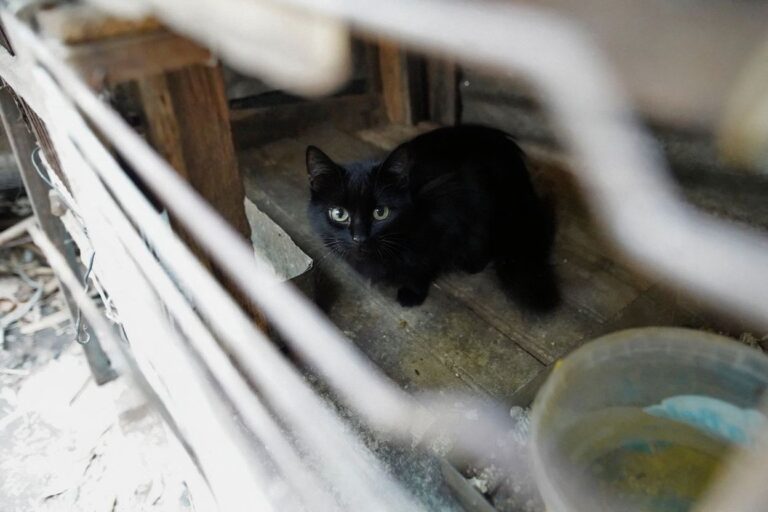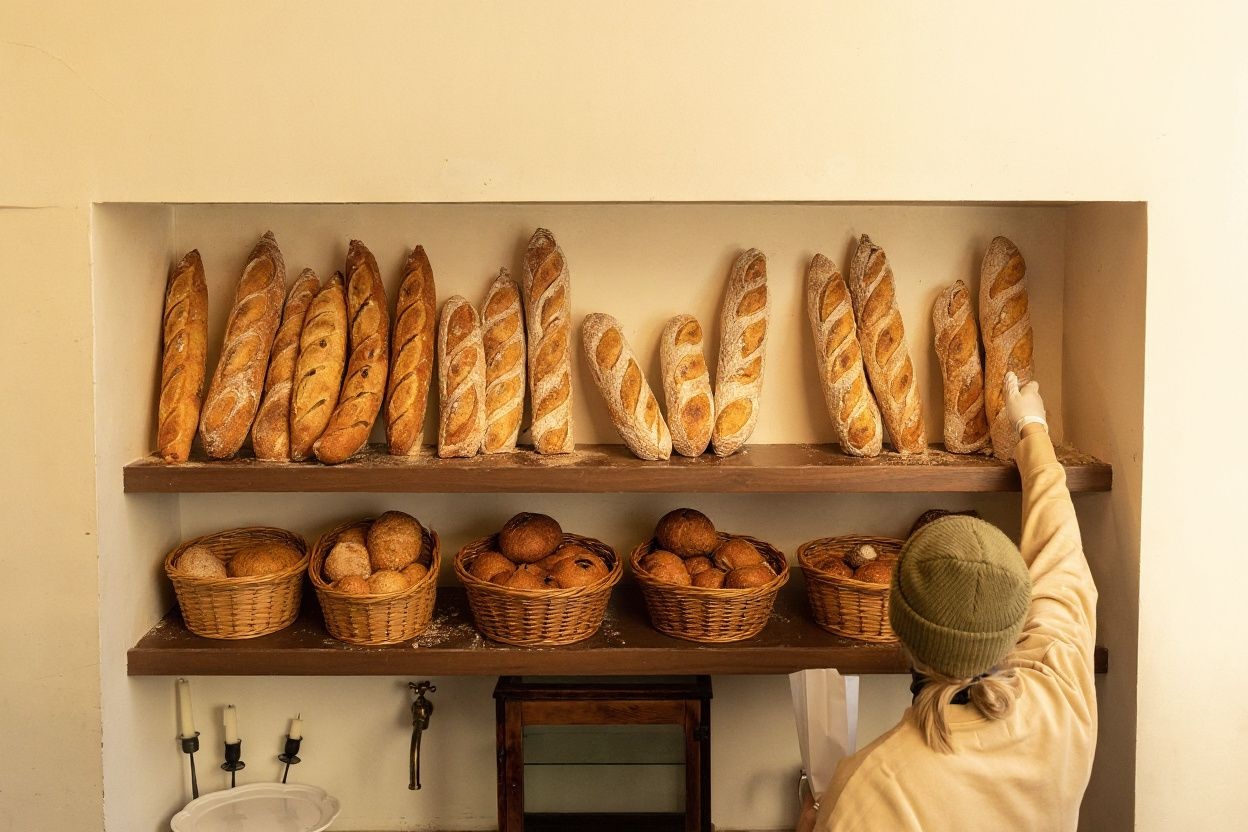
There are many superstitions in Europe, such as the famous “if you hold a gold coin while flipping pancakes, you’ll make your family rich.”
This particular superstition originates from France and is one of many that influence people’s lives.
Originating from ancient Greece in the 4th century BCE, superstitions were beliefs that people, both living and dead, could send bad luck to others through the practices of magic, prophecy, and the supernatural.
One could say it was like casting black magic. For the living, magic would be cast on an enemy or someone who has done them dirty. For the dead, it may haunt those who wronged them and bring them bad luck if a proper burial does not take place.
To prevent tragedy, the Greeks created good luck charms or amulets to ward off bad luck. Those who could not afford or get the amulets would have to avoid certain things, believing they would not bring bad luck, hence the term “superstitions.”
In the modern era, superstitions are beliefs and practices based on fear without scientific evidence to support them, and many often confuse them with crazy laws.
However, they are ultimately just beliefs and practices passed down through generations and can vary or be similar from culture to culture, especially between countries.
 Western countries would often wear black to funerals to show respect for the deceased.
Western countries would often wear black to funerals to show respect for the deceased.
Some superstitions overlap cultures
In Hong Kong, many believe that when you open an umbrella indoors, spirits are released into the house, as the spirits will hide in the umbrella due to their attraction to shadows.
In the US, the superstition is similar, but no spirits are involved. There aren’t any clear origins of how this superstition came to be, but some point to two things.
First goes to the Ancient Egyptians, who might have believed that opening an umbrella indoors and away from the sun angers the sun deity Ra, or that the peacock feather-parasols were meant to mimic the sky deity Nut and a person of non-nobility stepping under her shade was sacrilege.
The second reason seems more plausible: back when umbrellas were much bigger and had much less control over the speed and strength at which their canopies opened, opening one indoors could easily injure someone or break a fragile object — hence the bad luck.
Why some people still believe in superstitions
Those who believe in superstitions are “shown to help promote a positive mental attitude. Although they can lead to irrational decisions, such as trusting in the merits of good luck and destiny rather than sound decision making”, writes The Conversation.
The National Hockey League in the US is known to follow superstitions to the extreme. One example is Hall of Famer Glenn Hall, also known as “Mr. Goalie,” who would force himself to vomit before each game because “I got the feeling I wasn’t giving everything I had if I didn’t go through it. I also felt I played better.”
And while some superstitions come with no harm, others have negative side effects.
Due to the extreme belief in superstitions from all around the world, black cats often have trouble getting adopted because many believe they are associated with witches or bring bad luck.
According to the National Institutions of Health, black cats in an urban public shelter in Kentucky had the highest rate of euthanasia at 74.6% and the lowest rate of adoption rate at 10%.
Unfortunately, events like this occur due to superstitions; however, most are harmless and play a big part in one’s life and culture.
Even if you do not believe in superstitions, it is always best to respect them in a foreign country, as they are part of their culture and way of life.
10 superstitions in Europe to be mindful of
 The “putting the baguette upside down on a table will bring bad luck” superstition in France may be one of the reasons why you often see baguettes being sold in baskets or placed upright.
The “putting the baguette upside down on a table will bring bad luck” superstition in France may be one of the reasons why you often see baguettes being sold in baskets or placed upright.
1. Putting the baguette upside down on a table will bring bad luck.
Country: France
This superstition dates back to the Middle Ages when bakers would place baguettes specially reserved for executioners upside down to ensure no one would take it. However, this superstition is easily believed to be a myth since the baguette did not exist in the Middle Ages.
Over the years, it simply evolved into a symbol of bad luck. Now, the idea is that if you were to leave your baguette upside down, you’re inviting famine into your home.
Other French superstitions include:
- If a cat sneezes near a bride on her wedding day, it will be a happy marriage.
- If a woman sees an owl during the ninth month of her pregnancy, the baby is guaranteed to be a girl.
2. Don’t sit down when baking a cake.
Country: Poland
“Don’t sit down when baking a cake” is one of the few superstitions in Europe that extends to the culinary side: do not sit down when waiting for your cake to be baked in the oven.
If you do, the cake will “sit down” as well — which basically means it will sink and come out flat rather than being nice and fluffy. Just imagine your cheesecake being flat and mushy in the centre; now that’s bad luck.
Other Polish superstitions include:
- Marry in an ‘r’ month (in Polish), and you will be blessed with good luck.
- Don’t get a haircut right before an important exam.
3. If you find a halfpenny, you’ll have good luck.
Country: Ireland
Finding a halfpenny — that is, a halfpenny coin, which was discontinued in January 1987 — on the side of the road will bring you good luck. This is mostly due to how rare it is, implying that finding one means you’re lucky.
Other Irish superstitions include:
- If the palm of your left hand is itchy, money is coming to you; money is leaving you if the palm on your right hand is itchy.
- Giving something sharp to a friend can “cut” your friendship.
4. A wonky slice of cake
Country: Denmark
Eating a cake is supposed to bring you joy. However, in Denmark, slicing a cake could be one of the most nerve-racking tasks before eating it, making this one of the most stress-inducing superstitions in Europe. If the cake you have cut and served falls on its side, the recipient will have a crazy mother-in-law.
Other Danish superstitions include:
- If you wear your graduation cap before graduation, you must jump over it backwards, or you will fail.
- If you hang a horseshoe with the opening facing downwards, all the luck will fall out.
 Not only will spilling olive oil bring you bad luck, but it will also be hard for you to clean it up.
Not only will spilling olive oil bring you bad luck, but it will also be hard for you to clean it up.
5. Spilling olive oil will bring you bad luck
Country: Italy
In ancient times, when oil was extremely precious, spilling it would upset the gods would be upset, and you’d be cast with bad luck. Now, it is said that an upcoming life disaster will happen.
If it happens, you can reverse it by giving oil to a friend as it brings the giver good luck.
Other Italian superstitions include:
- Placing your hat on a bed will bring misfortune to the homeowner as in the olden days, a doctor or a priest would do this when called for a house visit and someone was seriously ill or on the verge of dying.
- If someone nears your feet with a broom, you will not find a partner. This is because a woman who inadvertently touched her feet with a broom or had her feet swept over by someone else was not considered good at household chores and, consequently, a questionable future wife.
6. Do not wish someone “good luck”; it’s a sign of bad luck. Instead, say “shit”.
Country: Switzerland
This is one of the strangest superstitions in Europe. “Good luck“ is usually a phrase often used when one is wishing that things will go well for another. However, in Switzerland, the phrase will bring bad luck if it is ever said. Instead, you would say “merde“ or “bonne merde,” which means “shit“ and “good shit.”
Other Swiss superstitions include:
- Having a bird leave you a “gift” on your car, house, or even your shirt is good luck. The more, the luckier you are.
- If you give gloves as a gift, the receiver and giver have bad luck.
7. Knock on wood and say “peppar, peppar ta i trä“ to prevent bad luck
Country: Sweden
“Peppar, peppar ta i trä,“ which directly translates to “pepper, pepper, take in wood.“ It also means to make contact with wood to ward off misfortune. This superstition has pagan origins, as knocking on tree trunks would awaken spirits and creatures who inhabited the woods for protection.
Other Swedish superstitions include:
- Leaving your keys directly on the table is bad luck, mostly because, back in the day, prostitutes would indicate their “availability” by putting their keys on the table.
- You will dream of your future husband if you sleep with seven picked wildflowers under your pillow on midsummer.
 The benefits of eating 12 grapes before the clock strikes 12 on New Year’s is that it brings you good luck, and you’ll get in your daily intake of healthy fruits in one go.
The benefits of eating 12 grapes before the clock strikes 12 on New Year’s is that it brings you good luck, and you’ll get in your daily intake of healthy fruits in one go.
8. Eat one grape every second for the final 12 seconds of the year for good luck
Country: Spain
Who knew eating grapes on New Year’s would bring you good luck? However, there’s a catch. You must keep eating it; once the clock strikes 12, you can’t chew on them anymore. If you succeed, you will have a luck-filled year.
Other Spanish superstitions include:
- You will lose your money if you leave your handbag on the floor. This is because doing so shows disregard for your money and wealth.
- Never wear yellow on the day of an exam or job interview, as it represents the devil.
9. Shout “Scherben bringen Glück“ and throw a plate to ward off evil spirits, especially at weddings
Country: Germany
Breaking a plate might cause a mess, but it means bringing in good luck in Germany. On the wedding night, guests would break porcelain plates to ward off spirits and bring luck to the couple’s marriage.
Other German superstitions include:
- To wish someone an early birthday is to wish them a year of bad luck.
- Cover your mouth when you yawn; otherwise, demons might enter your body.
10. For your future children to have straight teeth, chairs have to be neatly aligned
Country: Lithuania
This superstition is the best way for you and your partner to save money on your child’s dental payments in the future. However true this may be, it can also be seen as a way for couples to be closer while maintaining table manners.
Other Lithuanian superstitions include:
- If you drop a piece of bread on the floor, you should pick it up and kiss it to apologise for dropping it, as simply throwing it away shows disrespect for the hard work of those who made it and can bring bad luck.
- If a knife falls on the floor, you will soon have a male visitor. If a fork falls, you will have a female visitor instead.










